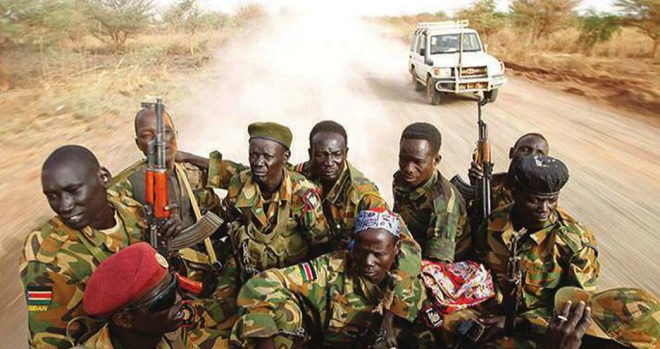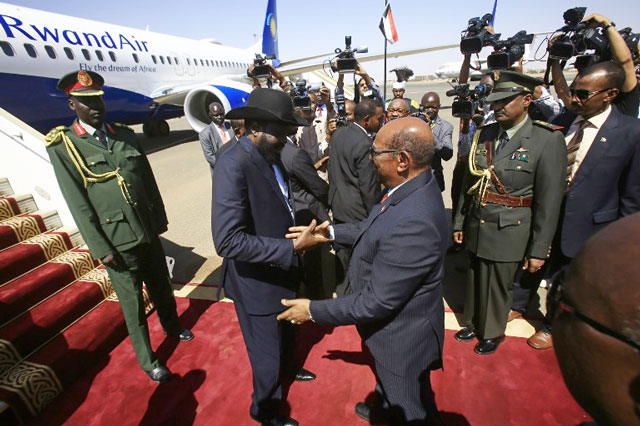
Khartoum, Sudan | AFP | Sudan has been shattered by decades of conflict and ruled for nearly 30 years by Omar al-Bashir, who has been indicted internationally for genocide.
Here is some background about the large partly desert African nation as it marks a month of anti-government protests.
– Bashir in power since 1989 –
Sudan became independent in 1956 after a period of joint rule by Britain and Egypt.
Since 1989 it has been led by Bashir, a career soldier who swept to power in a military coup backed by Islamists.
He was elected president in 2010 and 2015 in votes boycotted by the opposition.
Protests broke out in 2013 after petrol prices rocketed by more than 60 percent. Security forces killed scores of people.
Demonstrations against food price hikes erupted in early 2018 and again in December after the cost of bread tripled.
Sudan has a mainly Muslim population of 40.5 million (World Bank, 2017), with Arabic the official language and Islamic Sharia law in force since 1983.

– South Sudan breaks away –
Sudan endured a first civil war from 1955 to 1972, while a second — between northern and southern rebels — lasted from 1983 to 2005.
Millions died in the conflicts.
In 2005, Khartoum signed a peace treaty with the southern rebels granting the south autonomy pending a referendum on independence in 2011.
South Sudan proclaimed its independence in July 2011, six months after voting by 99 percent to secede from the north in the referendum.
The split removed roughly a quarter of Sudan’s territory. Before then it had been Africa’s largest country.
In early 2012 relations with South Sudan deteriorated, their armies clashing in oil-rich border zones.
– Devastating Darfur –
In 2003 a conflict emerged in Sudan’s vast arid western region of Darfur.
The rebels revolted against alleged political and economic marginalisation of the region’s black ethnic groups by the Arab-dominated Khartoum regime.
Khartoum responded by unleashing the Janjaweed militia, blamed for atrocities including murder, rape, looting and burning villages.
The violence, which has significantly dropped in recent years, resulted in one of the world’s worst humanitarian catastrophes.
The United Nations says about 300,000 people have been killed and more than 2.5 million displaced, many living sprawling semi-permanent camps.
The International Criminal Court has issued two arrest warrants for Bashir, as head of state, for genocide, crimes against humanity and war crimes in Darfur, which he denies.

– Battered economy –
The 2011 secession of South Sudan hit the Sudanese economy badly as it lost around three-quarters of its oil reserves and most of its revenues from the resource.
The country also suffered under a US economic embargo imposed in 1997 over its alleged backing of radical Islamist groups and the Darfur conflict.
It was lifted in 2017, but Sudan remains on a US blacklist of state terror sponsors, deterring investors.
Inflation runs at nearly 70 percent and several towns face shortages of bread and petrol.
Agriculture and livestock farming represent 35-40 percent of Sudan’s gross domestic product, according to the World Bank.
It is one of the world’s most impoverished countries, ranked at 167 out of 189 on the UNDP’s Human Development Index (2018), which compares longevity, education and per capita income.
– Ancient treasures –
Sudan’s ancient civilisations built more pyramids than the Egyptians, but they remain largely unexplored.
The archaeological site of the Island of Meroe, 220 kilometres (136 miles) north of Khartoum, is classed on UNESCO’s list of world heritage sites.
It was the heartland of the Kingdom of Kush, a major power from the 8th century BC to the 4th century AD, UNESCO says on its website.
 The Independent Uganda: You get the Truth we Pay the Price
The Independent Uganda: You get the Truth we Pay the Price



